(!) Since support from Microsoft will end on January 14th, 2020, Windows 7 will be excluded from the recommended environment from December 15th, 2019 on this site. Vì lý do Microsoft kết thúc hỗ trợ cho Windows 7 vào ngày 14/01/2020, Windows 7 sẽ là hệ điều hành không được khuyến khích sử dụng với trang web này từ ngày 15/12/2019.
Search by Category / Brand Tìm theo danh mục, nhãn hiệu
Search by Category Tìm theo danh mục
- Scheduled Maintenance Notice: This site will be unavailable due to scheduled maintenance from 8:00 24/11/2024 to 6:00 (ICT) 25/11/2024. We apologize for the inconvenience.
- [Thông báo] Cập nhật địa chỉ kho tập kết hàng hóa tại khu vực miền Nam của MISUMI Việt Nam. Xem chi tiết.
[Announcement] Update on warehouse address in the Southern region of MISUIMI Vietnam. See more. - [Cảnh Báo] Thủ Đoạn Lừa Đảo Từ Nhân Viên Giao Hàng – Yêu Cầu Trả Phí Ship. Xem chi tiết.
[Warning] Fraud Calling from Shipper - Asking to Pay Shipping Fee. See more.
MITSUBOSHI BELTING Timing Pulleys, Idlers
Puli đồng bộ (puli định thời) và Bánh dẫn được sử dụng kết hợp với dây đai đồng bộ. Chúng được ứng dụng rộng rãi trong các hệ thống tự động hóa phục vụ nhiều ngành công nghiệp và sản xuất khác nhau như thực phẩm, dược phẩm và điện tử. Khi lựa chọn Puli đồng bộ và Bánh dẫn, cần thiết xem xét các yếu tố như loại dây đai, chiều rộng dây đai (có sẵn theo inch và milimét), số răng, hình dạng puli, vật liệu (ví dụ: Thép, Nhôm, Thép không gỉ, Nhựa) và phương pháp xử lý bề mặt. Các yếu tố này rất quan trọng để đảm bảo việc sản xuất ra các sản phẩm chất lượng cao. Chúng tôi đặc biệt khuyên dùng các thương hiệu uy tín như MISUMI và BANDO CHEMICAL, cũng như các lựa chọn ở phân khúc phổ thông từ MISUMI ECONOMY.
Hãy tận dụng các ưu đãi MIỄN PHÍ VẬN CHUYỂN và KHÔNG CÓ GIÁ TRỊ ĐẶT HÀNG TỐI THIỂU đối với Puli đồng bộ và Bánh dẫn. Nếu bạn có bất kỳ thắc mắc nào hoặc cần hỗ trợ trong việc lựa chọn sản phẩm phù hợp, các chuyên gia của chúng tôi luôn sẵn sàng tư vấn và hướng dẫn.
Các loại Puli Đai Răng, puly răng, puly đai răng, puly dây đai phổ biến: puly trục 5mm, puly trục 8mm, puly trục 10mm, puly trục 16mm, puly trục 20mm, puly răng 3m, puly 3m 20 răng, puly răng 5m, puly đai răng 5m, puly 5m, puly 5m 20 răng, puly 5m 30 răng, puly 5m 40 răng, puly nhôm 5m, puly răng 8m, puly đai răng 8m, puly gt2 20 răng, puly đai thang 1 rãnh, puly đai thang 2 rãnh, bánh đai răng, puly bánh răng, bộ puly dây đai, puly đai dẹt, puly răng nhôm, dây đai puly, puly đai, puly dây đai răng, Pulley răng.
|
Type
|
|
|---|---|
Brand |
|
Filter By |
|
| CAD |
|
| Days to Ship |
|
1 itemsMặt hàng
- Sort By
-
You can add up to 6 items per a category to the compare list.

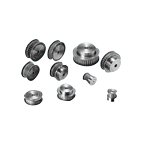

MITSUBOSHI BELTING
Timing Pulley S5M TypeThis Timing Pulley has an easily specified shaft hole type and diameter. MISUMI can machine the shaft hole for the pulley that is compatible with the Mitsuboshi belt, even without the need for detailed drawings[Feature]● Belt Width Used (mm.) : 10, 15, and 25● Applicable with Belt Type : S5M● Number of Teeth Minimum/Maximum : 14 to 60● Shaft Bore Diameter Minimum/Maximum (mm.) : 12 to 62● Shaft Bore Specs. : Can select between Round Hole, Round Hole + Tap and New JIS keyway + Tap● Material : Steel and High strength aluminum alloy[Application]Timing pulleys are frequently utilized in systems that incorporate timing belts to regulate and govern the movement of the machinery.
Type Belt Series Belt Width Used (mm)(mm) Number of Teeth(T) Pulley Shape Material Belt Width Used(Inch)(Inch) Surface Treatment Timing Pulley S5M 25 20 Shape A Steel - Not Provided From: 496,353 VND Special Price Days to Ship: Số ngày giao hàng: Same day  Same day
Same day
| BrandNhãn hiệu |
|---|
| Product SeriesDòng sản phẩm |
| CADCAD |
| From |
| Days to ShipSố ngày giao hàng |
| Type |
| Belt Series |
| Belt Width Used (mm)(mm) |
| Number of Teeth(T) |
| Pulley Shape |
| Material |
| Belt Width Used(Inch)(Inch) |
| Surface Treatment |
You can add up to 6 items per a category to the compare list. | |
| BrandNhãn hiệu | MITSUBOSHI BELTING |
| Product SeriesDòng sản phẩm | |
| CADCAD |
|
| From | 496,353 VND Special Price On Sale Till 31/03/2025 |
| Days to ShipSố ngày giao hàng | Same day |
| Type | Timing Pulley |
| Belt Series | S5M |
| Belt Width Used (mm)(mm) | 25 |
| Number of Teeth(T) | 20 |
| Pulley Shape | Shape A |
| Material | Steel |
| Belt Width Used(Inch)(Inch) | - |
| Surface Treatment | Not Provided |
Loading...Tải…
ConfigureTạo
Specification/DimensionsĐặc điểm kỹ thuật / Kích thướcĐặc điểm kỹ thuật / Kích thước
-
Belt Series
- 1.5GT
- 2GT
- P2M
- S2M
- MR2(for PowerGrip® GT®3)
- T2.5
- 3GT
- 3M
- P3M
- S3M
- MR3(for PowerGrip® GT®3)
- 5GT
- 5M
- AT5
- P5M
- S5M
- T5
- MR5(for PowerGrip® GT®3)
- 8M
- 8YU
- P8M
- S8M
- AT10
- T10
- 14M
- S14M
- H
- L
- MXL
- XL
-
Belt Width Used (mm)(mm)
-
Number of Teeth(T)
-
Pulley Shape
-
Shape A

-
Shape B

-
Shape C

-
Shape W

-
Shape E
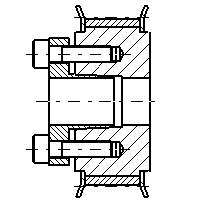
-
Shape F

-
Shape A
-
Material
- Steel
- Aluminum
- Stainless Steel
- Plastic
-
Belt Width Used(Inch)(Inch)
-
Surface Treatment
Related Categories to Timing Pulleys, IdlersDanh mục liên quan đến Timing Pulleys, Idlers
FAQ Timing Pulley
- Question: What are pulleys used for?
- Answer: Pulleys designed for belt transmission facilitate the transfer of rotational motion and power among multiple shafts and belts, serving various industries. They enable speed and torque adjustment, change motion direction, guide the belt to maintain alignment and prevent slippage.
- Question: What benefits do pulleys offer?
- Answer: Pulleys offer several benefits in engineering applications:
1.Power transmission: They efficiently transfer rotational motion and power between shafts through the use of belts.
2. Speed and torque adjustment: Pulleys of different sizes allow engineers to adjust the speed and torque in belt drive systems, adapting them to specific requirements.
3. Belt tensioning: They help maintain proper belt tension, ensuring optimal power transfer and preventing slipping between the belt and pulleys.
4. Direction change: Pulleys enable the redirection of rotational motion, allowing for the driving of components located in different directions within a system.
5. Belt guidance and alignment: They guide the belt, keeping it aligned and preventing it from slipping off the pulley, ensuring reliable and smooth operation. - Question: Why are pulleys better than gears?
- Answer: 1.Simplicity installation : Pulleys have a simpler design and operation compared to gears. They consist of a grooved wheel and a belt, making them easier to install, and maintain. Gears, on the other hand, require precise tooth profiles and arrangements, adding complexity.
2.Noise and Vibration: Pulleys generally produce less noise and vibration compared to gears. The direct contact between gear teeth can create noise, particularly at high speeds. In contrast, pulleys that use a belt or rope for motion transfer offer smoother operation, resulting in reduced noise and vibration levels.
3.Misalignment Tolerance Available: Pulleys can accommodate a certain degree of misalignment between the driving and driven shafts. This flexibility is valuable in situations where precise alignment is challenging. Gears, on the other hand, require more precise alignment for optimal performance and can be sensitive to misalignment.
4.Overload Protection: Pulleys can provide some level of overload protection due to the slipping action of the belt. If the load exceeds a certain threshold, the belt may slip on the pulley, preventing damage to the system. Gears do not offer this slipping action and are more prone to damage when subjected to excessive loads.
It's important to recognize that gears have their own advantages, such as higher precision, greater efficiency, and the ability to transmit higher torque loads. The choice between pulleys and gears depends on the specific requirements of the application, including factors like load capacity, precision, speed control, and cost considerations. - Question: What are the 3 types of pulleys?
- Answer: 1. V-Belt Pulley: This type of pulley utilizes V-belts, which have a trapezoidal cross-section. V-belts fit into the grooves of the pulleys, creating friction and transmitting power. V-belt pulley transmissions are widely used in various applications, including automotive engines, industrial machinery, and HVAC systems.
2. Flat Belt Pulley: In a flat belt pulley a flat belt is used to transmit power between the pulleys. Flat belt pulley transmissions are often employed in agricultural machinery, textile mills, and other industrial applications.
3. Timing Belt Pulley: Timing belt pulley use toothed belts, known as timing belts, that have teeth on the inner surface. These teeth mesh with corresponding grooves on the pulleys, ensuring precise and synchronous power transmission. Timing belt pulley transmissions are commonly found in engines, camshaft drives, and other systems that require accurate timing. - Question: What are the advantages of a pulley?
- Answer: 1.Speed variation: Pulley power transmissions allow for speed variation by using pulleys of different sizes or adjusting the pulley ratio. This flexibility enables the adaptation of rotational speed to match specific operational requirements, providing optimal performance.
2.Directional flexibility: Pulleys provide the ability to change the direction of power transmission. This flexibility allows for versatile routing of power.
3.Quiet and smooth operation: Pulley power transmissions typically operate with minimal noise and vibration. The smooth transfer of power between pulleys results in quieter and more comfortable operation.
4.Cost-effectiveness: Pulley power transmissions are cost-effective due to their simplicity, and ease of installation. They require minimal maintenance, reducing overall machine system costs.
- Câu hỏi: Puli (ròng rọc) được sử dụng để làm gì?
- Trả lời: Puli được thiết kế cho các bộ truyền động đai, giúp truyền chuyển động quay giữa nhiều trục và đai, phục vụ nhiều ngành công nghiệp khác nhau. Chúng cho phép điều chỉnh tốc độ và mô men xoắn, thay đổi hướng chuyển động, và dẫn hướng cho đai để duy trì sự kết nối và ngăn ngừa sự trượt.
- Câu hỏi: Puli mang lại những lợi ích gì?
- Trả lời: Puli mang lại nhiều lợi ích trong các ứng dụng kỹ thuật:
1. Truyền động: Chúng truyền chuyển động quay và công suất một cách hiệu quả giữa các trục thông qua việc sử dụng đai.
2. Điều chỉnh tốc độ và mô-men xoắn: Các puli có kích thước khác nhau cho phép điều chỉnh tốc độ và mô-men xoắn trong hệ thống truyền động đai, có thể đáp ứng được các yêu cầu cụ thể.
3. Căng đai: Chúng giúp duy trì độ căng đai thích hợp, tối ưu việc truyền lực và ngăn ngừa trượt giữa đai và puli.
4. Thay đổi hướng: Puli cho phép chuyển hướng chuyển động quay, giúp dẫn động đến các bộ phận nằm ở các hướng khác nhau trong một hệ thống.
5. Dẫn hướng và căn chỉnh dây đai: Chúng dẫn hướng dây đai, giữ cho dây đai thẳng hàng và ngăn không cho dây đai trượt khỏi puli, đảm bảo việc vận hành trơn tru và đáng tin cậy. - Câu hỏi: Tại sao puli tốt hơn bánh răng?
- Trả lời: 1. Lắp đặt đơn giản: Puli có thiết kế và hoạt động đơn giản hơn so với bánh răng. Chúng bao gồm một puli có rãnh và một dây đai, giúp việc lắp đặt và bảo trì dễ dàng hơn. Mặt khác, hệ truyền động bánh răng cần có các biên dạng răng và cách sắp xếp phù hợp, làm tăng thêm sự phức tạp.
2. Tiếng ồn và độ rung: Puli thường tạo ra ít tiếng ồn và độ rung hơn so với bánh răng. Sự tiếp xúc trực tiếp giữa các răng bánh răng có thể tạo ra tiếng ồn, đặc biệt là ở tốc độ cao. Ngược lại, puli sử dụng đai hoặc dây để truyền chuyển động mang lại hoạt động trơn tru hơn, giúp giảm mức độ tiếng ồn và độ rung.
3. Dung sai độ lệch: Puli có thể hoạt động bình thường với một độ lệch nhất định giữa trục dẫn động và trục bị dẫn. Tính linh hoạt này rất quan trọng trong những tình huống khó căn chỉnh một cách chính xác. Mặt khác, hệ truyền động bánh răng thường hoạt động không tốt khi có nhiều sai lệch, chúng đòi hỏi việc căn chỉnh chính xác hơn để tối ưu hóa hiệu suất hoạt động.
4. Bảo vệ quá tải: Puli có thể cung cấp khả năng bảo vệ quá tải nhất định do sự trượt của dây đai. Nếu tải vượt quá một ngưỡng nhất định, dây đai có thể trượt trên puli, ngăn ngừa hư hỏng cho hệ thống. Bánh răng không thể trượt và dễ bị hư hỏng hơn khi chịu tải quá mức.
Cũng cần công nhận rằng bánh răng có những ưu điểm riêng, chẳng hạn như độ chính xác cao hơn, hiệu quả cao hơn và khả năng truyền tải mô-men xoắn cao hơn. Sự lựa chọn giữa puli và bánh răng phụ thuộc vào các yêu cầu cụ thể của ứng dụng, bao gồm các yếu tố như khả năng chịu tải, độ chính xác, kiểm soát tốc độ và cân nhắc về chi phí. - Câu hỏi: Có những loại puli nào?
- Trả lời: 1. Puli đai chữ V (V-Belt): Loại puli này sử dụng đai chữ V có mặt cắt hình thang. Đai chữ V khớp với các rãnh của puli, tạo ra ma sát và truyền lực. Hệ truyền động puli đai chữ V được sử dụng rộng rãi trong nhiều ứng dụng khác nhau, bao gồm động cơ ô tô, máy móc công nghiệp và hệ thống HVAC.
2. Puli đai dẹt (đai phẳng): Trong hệ puli đai dẹt, một đai dẹt được sử dụng để truyền lực giữa các puli. Hệ truyền động puli đai dẹt thường được sử dụng trong máy móc nông nghiệp, nhà máy dệt và các ứng dụng công nghiệp khác.
3. Puli định thời: Hệ puli định thời được sử dụng với dây đai định thời (đai đồng bộ), có các răng trên bề mặt trong của đai. Các răng này ăn khớp với các rãnh tương ứng trên puli, đảm bảo truyền lực chính xác và đồng bộ. Bộ truyền puli định thời thường được sử dụng trong động cơ, ổ trục cam và các hệ thống khác yêu cầu tính đồng bộ cao. - Câu hỏi: Việc sử dụng puli có những lợi thế nào?
- Trả lời: 1. Biến thiên tốc độ: Truyền động puli cho phép biến thiên tốc độ bằng cách sử dụng các puli có kích thước khác nhau hoặc điều chỉnh tỷ lệ giữa các puli. Tính linh hoạt này cho phép điều chỉnh tốc độ quay để phù hợp với các yêu cầu vận hành cụ thể, mang lại hiệu suất tối ưu.
2. Tính linh hoạt theo hướng: Puli cung cấp khả năng thay đổi hướng truyền động. Tính linh hoạt này cho phép định tuyến công suất (tức việc thay đổi hướng truyền động của lực hoặc năng lượng) một cách linh hoạt.
3. Vận hành êm ái và trơn tru: Truyền động puli thường hoạt động với tiếng ồn và độ rung nhỏ. Việc truyền lực trơn tru giữa các puli giúp chúng hoạt động êm ái hơn.
4. Hiệu quả về chi phí: Truyền động ròng rọc có hiệu quả về chi phí do tính đơn giản và dễ lắp đặt. Chúng yêu cầu bảo trì ít, giảm chi phí cho hệ thống máy nói chung. - Misumi Việt Nam cung cấp các loại Puli Đai Răng, puly răng, puly đai răng, puly dây đai chất lượng, giá tốt, giao hàng nhanh. Nhiều dòng sản phẩm thông dụng, thường thấy trong các giải pháp sản xuất: puly trục 5mm, puly trục 8mm, puly trục 10mm, puly trục 16mm, puly trục 20mm, puly răng 3m, puly 3m 20 răng, puly răng 5m, puly đai răng 5m, puly 5m, puly 5m 20 răng, puly 5m 30 răng, puly 5m 40 răng, puly nhôm 5m, puly răng 8m, puly đai răng 8m, puly gt2 20 răng, puly đai thang 1 rãnh, puly đai thang 2 rãnh, bánh đai răng, puly bánh răng, bộ puly dây đai, puly đai dẹt, puly răng nhôm, dây đai puly, puly đai, puly dây đai răng, Pulley răng.

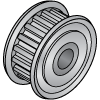



















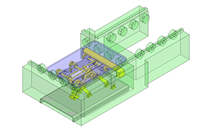





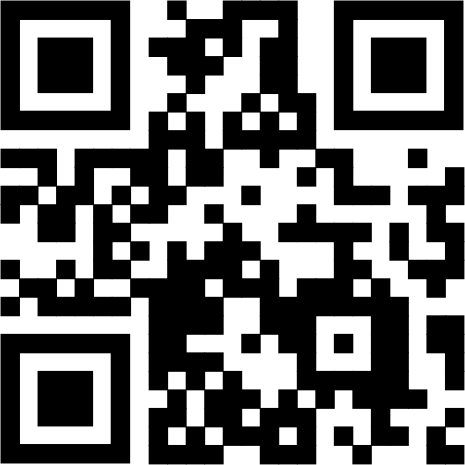

How can we improve?
How can we improve?
While we are not able to respond directly to comments submitted in this form, the information will be reviewed for future improvement.
Customer Privacy Policy
Thank you for your cooperation.
While we are not able to respond directly to comments submitted in this form, the information will be reviewed for future improvement.
Please use the inquiry form.
Customer Privacy Policy